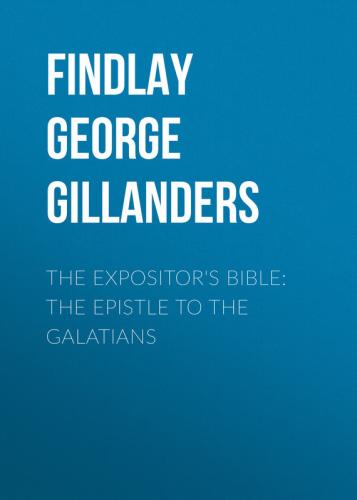13
Session xxii., Can. vi.
14
Comp. Rom. ix. 22; 1 Cor. xii. 3; xv. 1; 2 Cor. viii. 1.
15
See ch. ii. 6-14; 1 Cor. i. 12; iii. 22; iv. 9; ix. 1-5; xv. 8-10.
16
This genitive is, however, open to the other construction, which is unquestionable in 1 Cor. i. 7; 2 Thess. i. 7; also 1 Pet. i. 7, 13. Rev. i. 1 furnishes a prominent example of the
17
Acts ix. 1-19; xxii. 5-16; xxvi. 12-18.
18
Ἐπιφανεία, a supernatural appearance, such as that of the Second Advent.
19
Φωτίζω, comp. 2 Cor. iv. 6.
20
Ch. v. 11; comp. 1 Cor. ix. 20; Acts xvi. 3; xxi. 20-26; xxiii. 6.
21
Acts vii. 58; viii. 1-3; ix. 1.
22
23
1 Cor. xiv. 18; 2 Cor. xii. 1-6; Acts xvi. 9; xviii. 8, 9; xxii. 17, 18.
24
ἡμέραι ἱκαναί,
25
Ver. 18: that is, parts of "three years," according to ancient reckoning – say from 36 to 38 A.D., possibly less than two in actual duration.
26
2 Cor. xi. 13; iii. 1-3. See the remarks on the word
27
See Rom. ix. 1; 2 Cor. i. 17, 18, 23; 1 Thess. ii. 5.
28
Acts xi. 27-30. It is significant that this ministration was sent "to the Elders."
29
For the ministry alluded to in Acts xxvi. 20 there were other, later opportunities, especially in the journey described in Acts xv. 3; see also Acts xxi. 15, 16.
30
Ver. 22. It is arbitrary in Meyer to exclude from this category the Church of Jerusalem.
31
We follow Lightfoot in reading the ποτὲ as in ch. i. 23, and everywhere else in Paul, as a particle of
32
The writer is compelled in this instance to depart from the rendering of the English Version, for reasons given in the sequel. See also a paper on
33
These fourteen years probably amounted to something less in our reckoning, – say, from 38 to 51 A.D. Some six years elapsed before Paul was summoned to Antioch.
34
Acts xiii. 2, 7, 13, 43, 45, 46, 50; xiv. 12, 14; xv. 2, 12.
35
Comp. Rom. xi. 13; xv. 16, 17.
36
37
Acts xv. 28: "It seemed good to the Holy Ghost and to us." This was in the Early Church no mere pious official form.
38
For this use of ἀλλ' οὐδὲ compare Acts xix. 2 (here also after a question); 1 Cor. iii. 2; iv. 3. We observe a similar instance of the phrase in Æschylus,
39
This particle is a serious obstacle in the way of the ordinary punctuation, which attaches the following clause to ver. 3. The δὲ is similar to that of ver. 6 (ἀπὸ δὲ τ. δοκούντων); not of κατ' ἰδίαν δὲ in ver. 2, nor of θανάτον δὲ σταύρου (Phil. ii. 8), which are parenthetical qualifications. And to say, "Because of the false brethren Titus was not compelled to be circumcised," is simply an inconsequence. Would he have been compelled to be circumcised if they had
40
For this rendering of ποτὲ comp. ch. i. 13, 23; and see Lightfoot, or Beet,
41
Comp. Rom. ii. 11; 1 Cor. i. 27-31; xv. 9, 10; Eph. vi. 9; Col. iii. 25.
42
We cannot explain προσανέθεντο here by the ἀναθέμην of ver. 2, as though Paul wished to say, "I imparted to them my gospel; they imparted to me nothing
